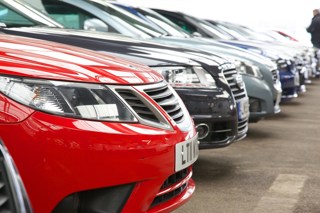One key development will be a focus on petrol-electric power in a bid to boost performance and lower emissions, rather than diesel. A hybrid version of the RX300 will be launched in mid-2004 with a petrol V6 generating power for front and rear electric motors.
By utilising regenerative braking, it's expected to post sub-200g/km CO2 figures in European trim, yet still make a 0-60mph time around 7.5 seconds.
Lexus says hybrid power will spread across the range as new models with more breathtaking designs are introduced. It will not have a diesel powerplant before 2005, and even then only a small range of engines will be on offer.
The new models will provide the company and its dealer network with a much-need sales boost – total unit sales are down 14.7 per cent to June. Lexus GB chief Karl Schlicht insists that the mantra remains the same: “Customer first, dealer second, company third.”
And he claims that this policy is the reason car sales have taken a dip – it's the wrong time in the life cycle of the GS and IS series, and the company refuses to push metal or cut dealer margins.
“We always keep dealers informed ahead of time of any sales or profitability issues,” says Schlicht. He points out that Lexus moved from fourth to first place in this year's Sewell's dealer attitude survey, with wins in many categories.
Speaking to AM while visiting the UK on an American dealer incentive trip, Denny Clements, Lexus USA general manager, says the company will sacrifice margin to protect dealers: “This way, even though they mostly have multiple franchises, they put their best people into the Lexus shop. It's motivating.”
With British buyers well ahead of the rest of Europeans in accepting Lexus, the big challenge now is getting the brand to succeed on the continent. Stuart McCullough, who vacated the Lexus GB job to become European director, says three key weaknesses need to be addressed: vehicle design, the lack of diesel engines, and poor life cycle management. He claims Lexus has failed to introduce new variants during a model's span to give buyers a reason to return to showrooms.


















Login to comment
Comments
No comments have been made yet.